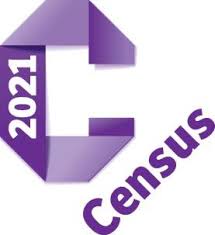 The British Humanist Association (BHA) has responded to the Office of National Statistics’ (ONS’s) first consultation on the 2021 Census in England and Wales, calling for more comprehensive and accurate information to be provided on religion and belief than was by the 2011 Census. This is because the question, as previously phrased, is both leading in what it asks and misleading in the results it presents. In 2011 the BHA ran the Census Campaign, which aimed to encourage non-religious people to tick the ‘No religion’ box on the Census. The Census showed a large swing away from ‘Christianity’ and towards ‘No religion’ but still recorded a higher Christian/lower non-religious figure than any other major survey on British opinion.
The British Humanist Association (BHA) has responded to the Office of National Statistics’ (ONS’s) first consultation on the 2021 Census in England and Wales, calling for more comprehensive and accurate information to be provided on religion and belief than was by the 2011 Census. This is because the question, as previously phrased, is both leading in what it asks and misleading in the results it presents. In 2011 the BHA ran the Census Campaign, which aimed to encourage non-religious people to tick the ‘No religion’ box on the Census. The Census showed a large swing away from ‘Christianity’ and towards ‘No religion’ but still recorded a higher Christian/lower non-religious figure than any other major survey on British opinion.
The BHA has advocated for the existing Census question to be modified to read ‘What is your religion, if any?’, so that it is less leading than the current ‘What is your religion?’ question but still comparable to it. In addition, a second question should be added asking about religious practice, so that it is possible to be clear about the extent to which individuals ticking a religious box are religiously observant. This is in line with the ONS’s own recommendations for other public surveys.
BHA Campaigns Manager Richy Thompson commented, ‘Public authorities frequently turn to the Census when resource planning, and individuals in parliament and the Government regularly turn to the Census to identify the appropriate role for religion in general and Christianity in particular in public life, in law and in funding allocations. It is therefore vital that the figures the Census presents are as accurate as possible and do not mislead people into thinking that the UK is a more religious country than it actually is.
‘Ten years ago we worked with the ONS to try and ensure that the Census results were as clear as possible. Unfortunately meaningful change to the question asked in 2001 was not realised in 2011. Having examined the reasons why we have now put to the ONS what we think would be a constructive way forward. We will be encouraging our members and supporters to engage further in the consultation process as the ONS moves to considering what individual questions the next Census should ask.’
What’s the issue?
The question presumes that respondents have a religion. Its placement after questions about ethnicity and national identity and the lack of context about in what sense respondents should ‘have’ a religion leads, as the ONS acknowledges, to the results capturing the broadest possible swathe of the population as giving a religious answer, whether individuals are practising, believing, belonging or simply very loosely culturally affiliating (due for instance to the religion in which they were brought up or were baptised into).
The ONS sees this as desirable as with some minority religions it considers it to be important that as many people as possible are identified with their religio-cultural background, because the ONS considers that even loose cultural affiliation can matter for resource planning. In addition, as both Judaism and Sikhism are considered to be races under equalities legislation as well as religions, it is important to identify the full extent to which individuals are ethnically Jewish or Sikh – regardless of whether this reflects anything in a religious sense.
In the run-up to the 2011 Census the BHA explored with the ONS how the question could be changed from what was asked in 2001 to avoid the results causing individuals to conclude that a higher proportion of the population is religiously belonging, believing or practicing than is actually the case. Disappointingly almost no change was eventually made, but the ONS stated that ‘using the term “Christian” (for example) without distinguishing which population is being referred to is… likely to cause confusion. Clarity that the… census question aims to include the weakest form of affiliation… (“loose belonging including ethnic or family connections”) will help to minimise confusion.’ However, when the results were published, no such clarifications around the figures were made.
The 2001 Census recorded 72% of the population as Christian and 15% as of no religion, while the 2011 Census recorded 59% and 25%, respectively. This compares with the British Social Attitudes Survey, which asks about belonging to a particular religion and in 2013 recorded 51% of the population as belonging to no religion while 42% belonged to a Christian denomination or were non-denominational Christians.
Notes
For further comment or information, please contact BHA Campaigns Manager Richy Thompson at richy@humanists.uk or on 020 7324 3072.
Read the ONS’s census consultation: https://consultations.ons.gov.uk/census/2021-census-topics-consultation
Read the BHA’s response: https://humanists.uk/wp-content/uploads/2021-Census-topics-consultation-response-from-the-BHA.pdf
Read more about surveys and statistics around religion or belief: https://humanists.uk/campaigns/religion-and-belief-some-surveys-and-statistics/
The 2011 Census Campaign: http://census-campaign.org.uk/
The British Humanist Association is the national charity working on behalf of non-religious people who seek to live ethical and fulfilling lives on the basis of reason and humanity. It promotes a secular state and equal treatment in law and policy of everyone, regardless of religion or belief.
